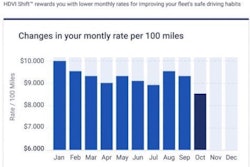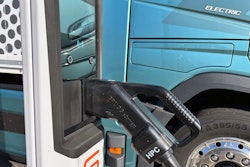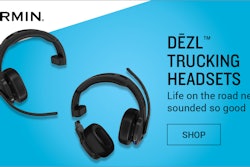See Part Two of the ELD Data Grab series at this link:
How much is your e-log data worth? By one count, a discount offered by Progressive Insurance, it knocks off an average of $1,384 from premiums of users willing to share data from their electronic logging devices. If other insurers have similar offers, they haven’t made them known widely, though one insurer confirms to Overdrive it’s moving in similar directions.
Behind-the-scenes interest among ELD vendors and other parties in drivers’ location and driving behavior, among other data recorded by ELDs, raises questions of how to control the data and who should profit from it.
“It’s kind of the classic move now in all sectors,” says Karen Levy, a sociology professor at Cornell University, whose research concentrates on data privacy and technology and who is penning a book on the ELD mandate. “The data becomes a currency itself. It obviously has value to the people purchasing it, and none of that is accrued to the people producing it.”
By agreeing to terms of service with an ELD provider, customers often grant permission for data sharing, possibly without realizing it. The providers can use the data for customers’ benefit, such as by helping carriers address detention problems by offering them analytics on dock delays. However, providers also are monetizing the data in other ways, such as selling it to third parties or using it to further other business interests of their own.
“Are you surprised? I’m not,” says David Owen, head of the National Association of Small Trucking Companies, about the demand for ELD data. “We’ve turned the world over to technocrats.”
Among 14 ELD providers – serving more than 80 percent of the total market, based on Overdrive research – interviewed or surveyed by Overdrive, none admitted selling ELD-derived datasets, though at least one has a user agreement that allows it by default. Four declined to answer questions on the topic.








